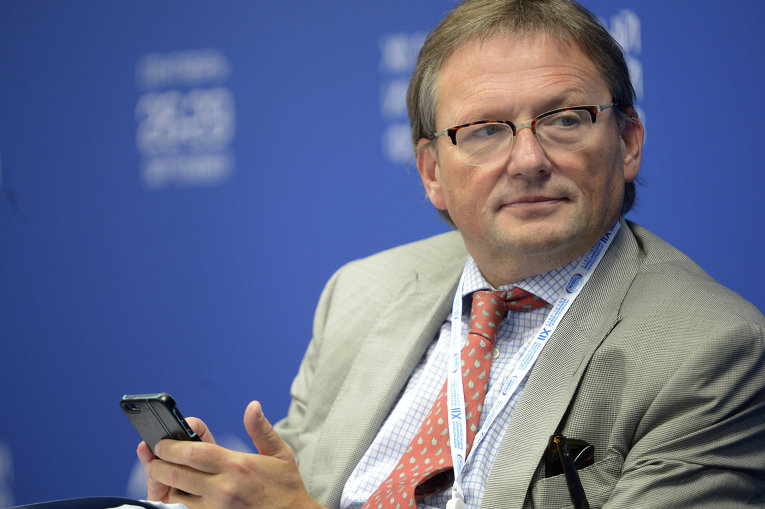MOSCOW, November 6 (RAPSI) – Boris Titov, the Kremlin's business ombudsman, told journalists about the concept of digital currency regulation in Russia that encompasses questions linked to blockchain, cryptocurrency technologies, operation of cryptocurrency trading platforms.
According to Titov, it is necessary to draft laws and expand Russian jurisdiction in this dynamically developing field, in particular, in order to prevent unwarranted interference of law enforcement authorities in business activities involving the use of blockchain technology.
The blockchain technology is the key element of the concept of digital currency regulation, presented by Titov. It is defined as a sequence of blocks of information about operations conducted in or with the use of a distributed database system built on the basis of given algorithms.
Blockchain prohibits editing or deleting entered notes. However, all users may keep and update the register’s copies. This technology is highly secure. Therefore, transaction block registers may be applied for confirming rights of the registry entry’s holder to private property. The registry entry is to be classified as token with cryptocurrency being its sub-type.
Experts believe that digital currency is a payment instrument. However, the legal regulation draft envisages that Russian subjects would not be able to pay bitcoin cryptocurrency to each other because ruble is the country’s official means of exchange.
According to the drafted conception, certain crypto currencies can be exchanged for rubles orforeign currencies. The document also provides possibilities for using digital currencies in foreign trade transactions. The regulation program envisages establishment of cryptocurrency exchange house for centralized conduct of operations. Only digital currencies developed by famous organizations and complying with the requirements of information security are to be officially traded in Russia.
Market players intending to use cryptocurrencies would be obliged to undergo identification. This requirement is based on the experience of Japan and UK, experts claim.
Mining, the way of support and development of products based on block chain technologies with the use of computer power, is to be taxed, Titov says.



